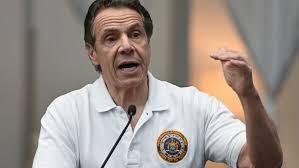 Garrison Keillor once said, if the purpose of one’s life is to serve others, then what purpose is served by the existence of those others? This actually poses a deep philosophical issue. John Donne wrote that no man is an island. Yet each of us experiences existence only within the confines of our own skulls. Experiencing only one’s own feelings, not those of others.
Garrison Keillor once said, if the purpose of one’s life is to serve others, then what purpose is served by the existence of those others? This actually poses a deep philosophical issue. John Donne wrote that no man is an island. Yet each of us experiences existence only within the confines of our own skulls. Experiencing only one’s own feelings, not those of others.
It can be argued that we only ever do seemingly selfless deeds when it rewards us with good feelings. Evolution programmed us to have such feelings — and with empathy for the feelings of others, even if we cannot experience them directly — to make us do things for the common good.

And not just because of our programming. Your rational brain tells you that if you want to live in a society where people treat each other well, it behooves you to behave that way yourself. And if everybody does this, it’s good for everybody. We do what’s right mainly because we know it’s right, and why.
Holding fast to these standards of conduct is especially vital in a crisis like today’s, where the temptations for selfishness are heightened, and so is its ill effect. Where social solidarity is more needful than ever. Americans are largely meeting the test.

Thus if we do good or are successful, we want others to know it. One way is to tell them. But that actually contravenes the golden rule. How so? Well, do you enjoy hearing others’ boasts? Saying “Look how great I am” implicitly tells the hearer, “and you’re not.” Even if unintentionally, self-aggrandizement forces the hearer to ponder the comparison. It’s not nice. That’s why bragging has a negative connotation, and modesty and humility are virtues.* A basic rule of living in society.

But some are boastful by boasting. “I am very rich,” Trump has said.

What’s truly incredible is a president using a horrific crisis, with thousands dying, and millions suffering deprivation, as an occasion for sickening orgies of self-congratulation.
And contemptible as such braggadocio is, worse yet if the boasts are lies. It’s been factually documented how his failure of leadership delayed forceful action on testing to contain the virus. Doing what other countries did would have saved many thousands of lives and trillions in economic devastation. This reality might have brought forth some humility. A different reality can only be constructed out of lies. Like the simply false claim that we’re testing more than any other nation. (Our per-capita testing rate is certainly way below.)

Knowing he’s being unfavorably compared to Cuomo infuriates Trump. But, incapable of learning from Cuomo, he resorts to pot-shots at him: “He had a chance to buy, in 2015, 16,000 ventilators at a very low price . . . he shouldn’t be talking about us. He should be buying his own ventilators.” But instead, said Trump, Cuomo goes for “death panels and lotteries.”
Albany Times-Union columnist Chris Churchill has deconstructed exactly how vile this Trump cheap shot is. It came (surprise) from the internet, a right-wing website, based on a 2015 state task force report on pandemic planning. Churchill read it and interviewed the task force leader — concluding that the attack on Cuomo was “blatantly dishonest.” The report discussed strategies for dealing with a ventilator shortage, but did not recommend buying thousands just in case. Let alone somehow present an option to buy 16,000 “at a very low price.”
But Trump’s gross distortion of the facts is kind of beside the point. He’s repeatedly shown he needs no facts at all to slime somebody. And keeping up such divisive dishonesty, even in this time of national trauma, is just ghastly.

* Certain commenters will jump to sneer about my own modesty. I was tempted to actually talk about it here. But that would be immodest.
